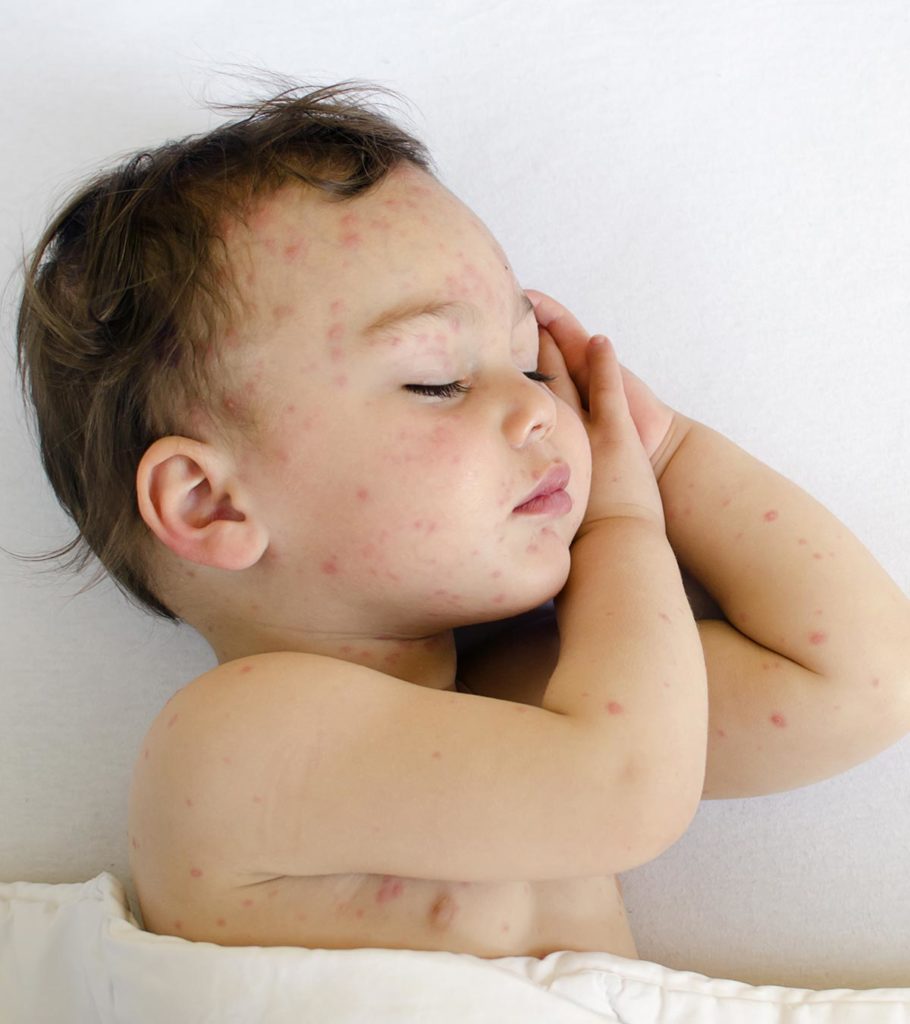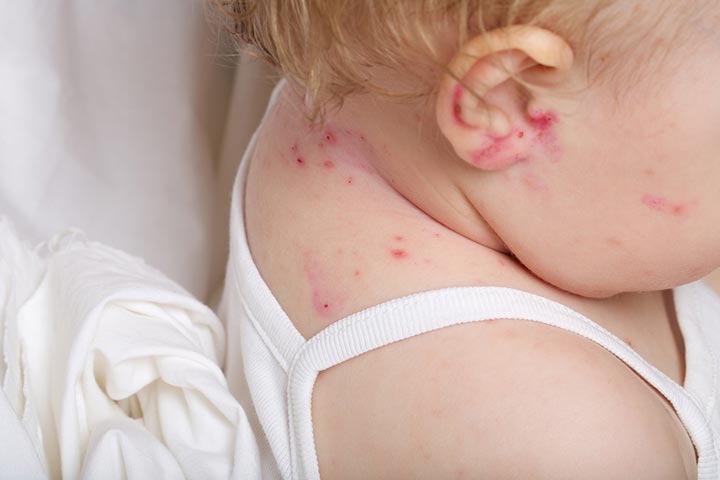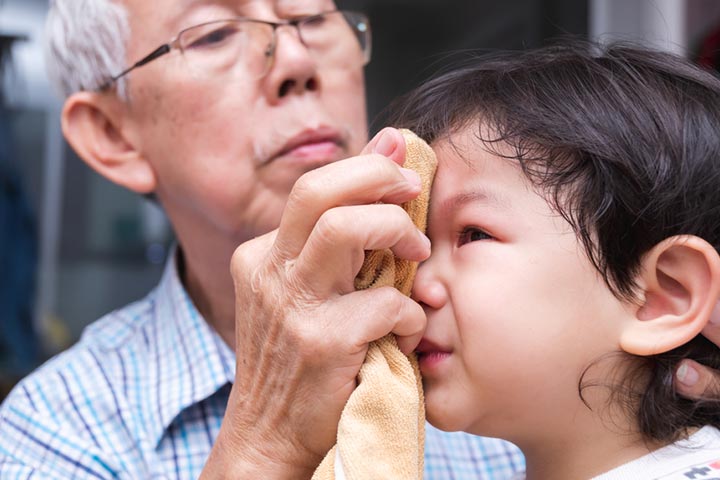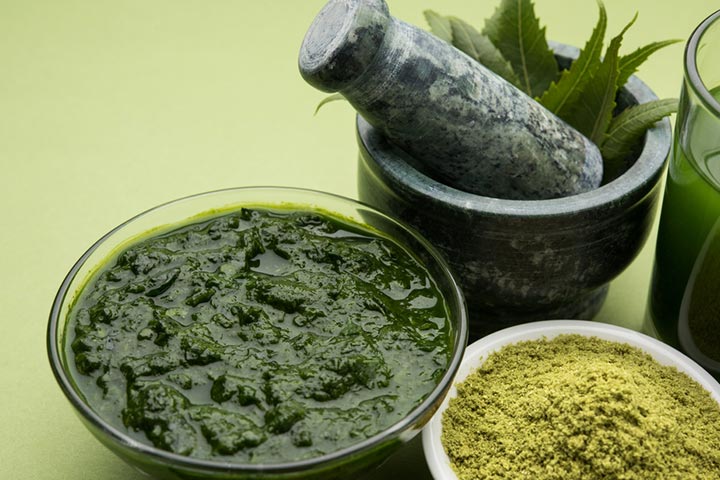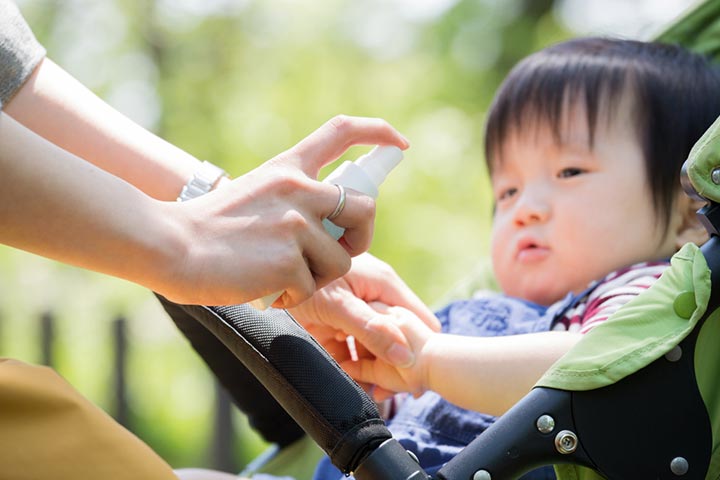Don’t let the fear of bug bites in babies keep you from letting your little one enjoy the outdoors. If you live in a tropical country or a beautifully sunny place with occasional rainfall, then bugs, wasps, mosquitoes, and other insects will be frequent visitors. However, this shouldn’t get in the way of your baby playing outside or enjoying nature. Although you may be tempted to keep them inside safely, we have some tips to help your child play outdoors comfortably.
This post tells you about bug bites, including how to recognize them and their treatment and preventive measures for babies.
Recognizing Bug Bites On Babies
To be able to treat a bug bite, you must be able to identify it. Bug or insect bites may include mosquito bites, wasp stings, tick bites, bee stings, spider bites, tick bites, and ant bites. If there are lots of bugs around your area or if your baby is spending a lot of time in gardens or parks, then you must definitely keep a watch for these signs (1):
- Reddish blotches or tiny bumps on your baby’s skin
- Itchy rashes or hives that may cause irritation to your baby (2)
- Swollen bumps or welts that could turn painful
Sakina Bajowala, a mother who is also a pediatric allergist and immunologist, shares an uncommon sign of a mosquito bite that her son experienced. She says, “Son #2 woke up this morning looking like a streetfighter! My little one endured a mosquito bite at the outer corner of his left eye yesterday afternoon. It was mildly swollen at the time, and became progressively worse as the night wore on.” She explains the phenomenon is normal and not an allergic reaction saying, “Certain areas of skin, such as around the eyes and on the lips, are more loosely attached to underlying tissues and muscles than skin elsewhere on the body. This allows these areas extra “give” and elasticity when reacting to the inflammatory enzymes in mosquito saliva (i).”
Treating Baby Bug Bites
Regardless of climate, bugs exist in all conditions. If you have been unsuccessful in preventing the bites, there are many ways in which you can reduce the discomfort and treat them:
1. Infections and allergies
In case your child develops an allergic reaction to certain insect bites, you must consult a doctor and ask for the proper remedy.
- Allergic reactions can be identified if the swelling and itching do not subside, or if your baby develops wheezing or their lips or tongue swell. According to the American College of Allergy, Asthma & Immunology, about 0.4% – 0.8% of children experience a potentially life-threatening allergic reaction to an insect bite.
- For minor infections following bug bites, you can apply a corticosteroid cream after washing the area well (2) (4).
2. Cooling effect
Since bug bites are more common during summers and cause itching, it is best to first apply cloth dipped in cold water to the affected area. This will not just provide relief to your baby but will also help to reduce the redness of the bug bites on the baby’s face and ease inflammation (2).
3. Medicines
Here are some medicines that are safe and recommended for bug bites:
- Apply calamine lotion, which has antiseptic properties and cooling effect. However, avoid the areas near the eyes, hands, and genitals.
- Antihistamine creams can be safely administered to control itching.
- Mild pain killers can be used after consulting your doctor if the bites become painful (3).
4. No scratching
Stop your baby from scratching the bite area. This can further aggravate itching and cause infections. Cut your baby’s nails short as a precaution. An infected bite from scratching may be indicated by increased pain and redness, soft scabs, or pus-filled blisters. (1)
5. Home remedies
Try these home remedies for a safe, speedy recovery.
- Mix a little baking soda in water and apply it to subside the swelling (4).
- Apply a paste of equal amounts of sandalwood and turmeric powder. While sandalwood has a cooling effect, turmeric acts as an antiseptic. Make sure you buy fresh sandalwood and turmeric powder. Do not apply any home-made remedies to open skin (5).
- Crush some neem leaves to make a paste (grinding in a blender will also do the trick). Apply it over the bug bites for quick relief (5).
Preventing Bug Bites
Won’t it be amazing if you can stop the bugs from biting your cherub? Here are a few things you can do to keep away the menace:
- If there is a sudden increase in the number of mosquitoes in and around your house, use a spray or other methods of getting rid of them.
- Do not expose the child to open areas for too long. If you take the child out for a stroll, make sure to keep them well covered. However, avoid very bright colors and floral patterns, as they attract insects.
- Keep windows closed, especially during the evenings, to prevent bugs from entering.
- For children older than 12 months, use mosquito repellent creams. Choose one that is suitable for babies.
- Use mosquito nets when your baby is asleep or even over their stroller while taking them out.
Bug bites in babies will irritate them and cause hives, redness, and bumps on their skin, whether the bite is from a mosquito, bee, or flea. In most cases, the rashes can be treated and symptomatically relieved with cold water, lotions and creams, and certain home remedies. However, some bug bites might induce allergic reactions; therefore, be aware of the signs of bug bites and seek medical advice if necessary. You should also aim to prevent bug bites in babies. Dressing the baby in appropriate clothing and using nets on windows could repel bugs, preventing bug bites in babies.
Key Pointers
- Bug bites in babies are characterized by reddish blotches, tiny and swollen bumps, and itchy rashes.
- Seek immediate medical attention if the baby shows signs of allergies, such as persistent swelling or itching, wheezing, and swelling of the lips and tongue.
- Calamine lotion, painkillers, and antihistamine creams can treat bug bites.
- Home remedies like sandalwood, turmeric, and baking soda paste, and cold compress can also provide relief.
- Prevent bug bites by using repellant sprays in and around your house, limiting outdoor playtime, and keeping windows closed during the evening.
- Mosquito and bug-repellent creams are safe for children over 12 months old.
Bug bites may be quite annoying for babies. Learn cool tips to get relief from pesky bug bites with these easy and effective tips.
